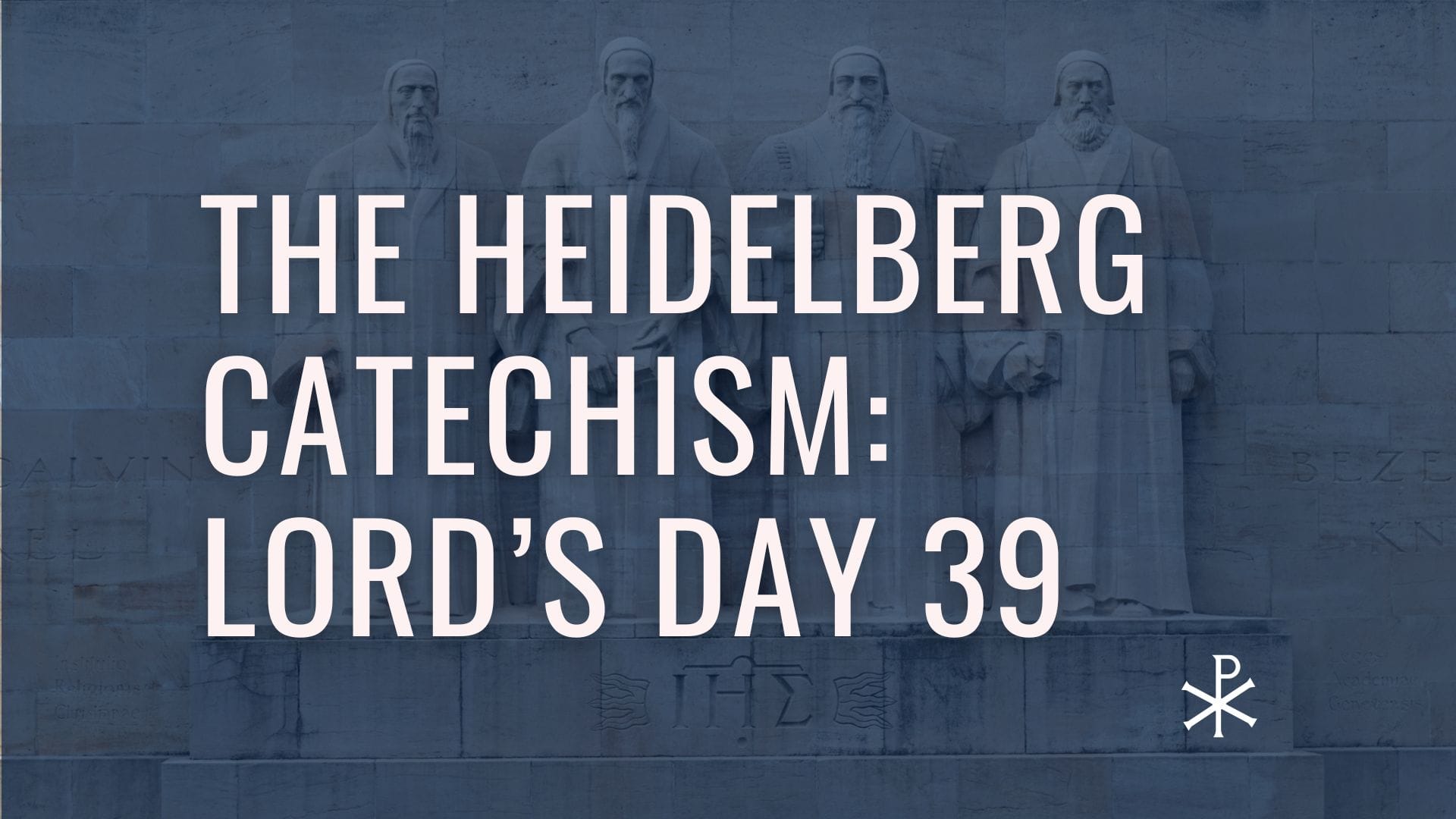Heidelberg Catechism: Lord's Day 39
Lord’s Day 39 explores the fifth commandment’s call to honor father and mother, revealing how respect for authority, rightly understood in Christ, forms the foundation for family, church, and society.

Last week we reflected on the fourth commandment and the rhythm of rest, remembering, and rejoicing that shapes the Lord’s Day. God calls us to rest not in idleness, but in worship. He calls us to stop striving so we can remember that Christ’s finished work defines our identity. This week, the Catechism turns to the fifth commandment, the doorway into the second half of the law.
With this shift, the focus moves from love for God (the vertical) to love for neighbor (the horizontal). Yet the order is intentional: our reverence for God always expresses itself in how we relate to others. And at the top of that list stands a relationship so fundamental that it becomes a paradigm for every other kind of authority: honor your father and your mother.
Question 104
What is God’s will for you in the fifth commandment?
That I show honor, love, and faithfulness to my father and mother, and to all those in authority over me; that I submit myself with proper obedience to their good instruction and discipline; and also that I be patient with their weaknesses and shortcomings, since it is God’s will to govern us by their hand.¹
¹ Exodus 20:12; Deuteronomy 5:16; Romans 13:1–2; Ephesians 6:1–3
Honor as the Foundation of Order
The word honor (Hebrew kabed) literally means “to make weighty.” To honor someone is to recognize the significance God has placed upon them. In the family, this means treating parents as those through whom God's gifts of life and nurture have come. In society, it means recognizing that authority is not a human innovation but a divine provision for human flourishing.
The Catechism wisely expands the scope: this commandment includes not only parents but “all those in authority over me.” That means teachers, elders, employers, and governing officials—that is, any who exercise legitimate responsibility for the good of others. The same principle applies in every sphere: respect for authority reflects our trust in the God who ordains it.
The Challenge of Imperfect Authority
Of course, this commandment immediately meets our realism. Parents fail. Leaders disappoint. Institutions misuse power. The Catechism doesn’t ignore these challenges. Instead, it calls us to “be patient with their weaknesses and shortcomings, since it is God’s will to govern us by their hand.”
That doesn’t mean blind obedience to injustice or silence in the face of sin. Scripture honors courageous disobedience when earthly authorities demand what God forbids (Acts 5:29). Yet even resistance should be marked by humility and respect. To honor those over us is to remember that they, too, are under God.
In the home, that means children learning that obedience is not about control but about trust. For adults, it means honoring parents even when the relationship becomes complex, especially in seasons of aging or decline. In the church and in society, it means engaging authority with a posture of prayerful respect rather than cynical contempt.
The Freedom of Honor
True honor is not servility; it is freedom rightly ordered. To submit where God calls us to submit is to live in harmony with His design. The breakdown of authority in families, churches, and nations is not the path to liberty; it’s the loss of it. The command to honor father and mother stands as a bulwark against the chaos and destruction of self-will.
Jesus Himself models this perfectly. Though He is Lord of all, He “was submissive” to His earthly parents (Luke 2:51) and obedient to His Father’s will even unto death (Phil. 2:8). In Him, obedience and dignity are never in conflict.
An Encouragement
We live in an age suspicious of all authority, often with good reason. Scandals, hypocrisy, and abuse have eroded trust. Yet the biblical response is not rebellion but renewal. God’s answer to bad authority is not the absence of authority, but its redemption in Christ.
Every time we show respect for rightful authority—whether at home, in the workplace, or in civic life—we bear quiet witness to a better kingdom. We point beyond human frailty to the One who rules with justice and compassion, whose authority brings healing, not harm.
A Closing Prayer
Heavenly Father, You are the source of all authority and the giver of every good gift. Thank You for those through whom You order and care for our lives—parents, teachers, leaders, pastors. Forgive me for the pride and impatience that resist their guidance. Give me a heart that honors others as unto You, even when it costs me. And when I am placed in authority, grant me the humility and wisdom to lead as a servant of Christ. Through Jesus, who learned obedience and reigns with righteousness, Amen.
Daily Bible Readings
New Testament in a Year
September 28 – John 13:21–38
September 29 – John 14:1–14
September 30 – John 14:15–31
October 1 – John 15:1–17
October 2 – John 15:18–27
October 3 – John 16:1–15
October 4 – John 16:16–33
The Bible in a Year
September 28 – Isaiah 28–29; John 13:21–38
September 29 – Isaiah 30–31; John 14:1–14
September 30 – Isaiah 32–33; John 14:15–31
October 1 – Isaiah 34–36; John 15:1–17
October 2 – Isaiah 37–38; John 15:18–27
October 3 – Isaiah 39–40; John 16:1–15
October 4 – Isaiah 41–42; John 16:16–33
